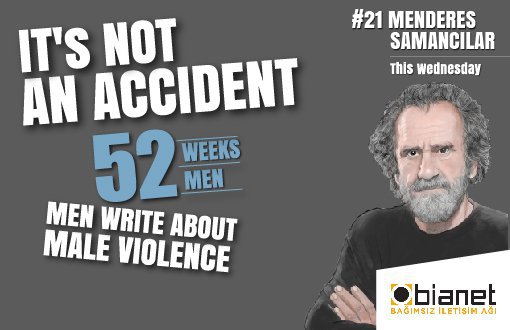Click to read the article in Turkish/Kurdish
I think I was around five or six years old when I first started to learn that it was always women and girls who were beaten up at the end of family fights. I didn't really know and wasn't much curious about the reason of those fights.
As the years went by and I began grow up, I gradually began to learn also the reason and the meaninglessness of those beatings. The foremost reason was freedom of thought, sure, paradise was laying at their feet but on the condition that they answered to men about every step they took and every thought they had.
The changes I saw on our women neighbors and the wives of our relatives, who frequented our home, were pretty much the same. Some were coming with a black eye, some with a fractured head or a broken arm. For those who heard or saw these, it was only natural.
"Nothing's the matter, her husband beat her".
I used to hear this sentence most often from women, and especially the eldest, wisest ones.
"My daughter, he is your husband, he will both beat you and love you. Hold your tongue, make a leg, sit still."
Either there were no femicides then or we weren't hearing about it. Since there were no mass communication tools like now, we would hear about a femicide that happened two blocks from us either months later or we wouldn't hear about it at all.
What we heard most often about the deaths of women and girls was suicide. The easiest way of suicide was to hang one's self and kick away the bucket.
We would hear, for instance, that the new bride Maya over in the other neighborhood hanged herself.
All the neighborhood would go to see the hanging woman and everyone, both those who had seen the dead and those who had not, would together sing long and sorrowful laments that were hard to understand.
Loves in the hearts of young girls required an even greater struggle. If a young girl was in love with someone, she had to keep it a secret. If her elder brothers or father or even a distant relative heard about it, 80 percent of the time it would end in murder.
Last story I witnessed before moving abroad was the story of the eighteen-year-old Suna.
Not allowed to marry her lover, Suna had jumped off the Stone Bridge into the Seyhan river and her body was found three days later in Karataş in the foamy waters of the Mediterranean. People had written epic songs and lamented for her. Then, like any death, Suna's death was forgotten too.
As the smell of death permeated the entire Çukurova [a lowland plain in southeast Turkey], the dark destiny of the woman would blossom anew. In the field, in the struggle, right in the heart of sorrows, blood spills on the face of white-spiked cottons, the bridal veils cry, Çukurova burns, burns and burns...
Most of the women who were killed were working at the honkytonks.
Everyone knows the situation in Adana, this city most definitely had the highest number of honkytonks, coffee houses and open-air cinemas in Turkey. Many of the honkytonks, which could be found in almost every corner of the city, were located along the banks of the river.
The iron bridge built by the French and situated right by the honkytonks was used only by pedestrians and eastbound trains. These voyages and passages continue to this day. Our neighborhood was almost right across the bridge.
Since there were many people from the neighborhood going to the honkytonks as clients, we would hear the honkytonk news before anyone else at the coffee houses and elsewhere.
Every month, either a woman working at a honkytonk was killed or some woman jumped off the iron bridge. The ones who named the women, who were forced by men to work at honkytonks, as "Honkytonk Women" were again the men themselves.
The small talk that the men made among themselves was always the same: "They threw the woman off the iron bridge, but my dear brother, she did wrong by those fellows at the next table."
These and similar small talks used to drag on and on. All in all, the woman has deserved to die, whatever the man does, he is right, it is a matter of pride, he has even begged the woman: "Please, don't do that, don't go, don't make me kill you..." The stories would begin like that and end after a short while under the sad lights of the honkytonks...
One night, I was walking along the backstreets of Beyoğlu when I heard a woman's scream shattering the world around, it tore one's heart out. The weather was cold as ice, her thin clothes were in tatters, her hands and face were drenched in blood.
The woman was screaming at the top of her lungs: "Yes, you jerk, yes we are prostitutes, but we are prostitutes because you created prostitution by becoming pimps. Is this how we were born from our mothers? You men reduced us to this, you pricks."
When I heard this outcry of the woman, the honkytonks in Adana and the helpless women swam before my eyes, my heart... (MS/ŞA/APA/SD/TK/IG)
* Images: Kemal Gökhan Gürses





